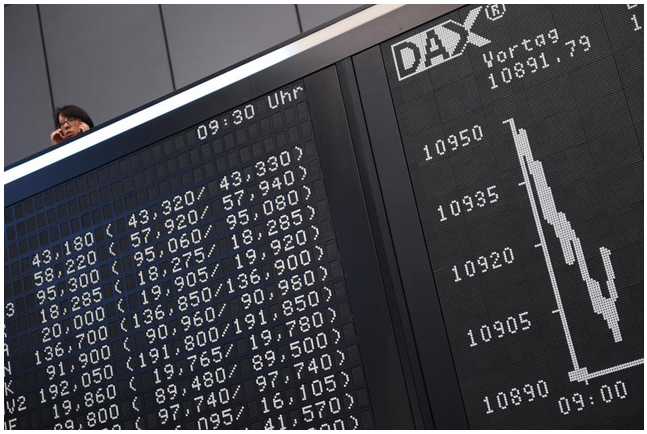The German stock exchange has been experimenting with DLT solutions for some time. (Keystone / Arne Dedert) A consortium of Swiss firms has joined forces with Germany’s main stock exchange to create a distributed ledger technology (DLT) trading system that would rival one being built by the Swiss stock exchange. The alliance is between Deutsche Börse, Switzerland’s state-owned telecoms company Swisscom, budding Swiss crypto bank Sygnum, the Daura platform for listing tokenised company shares and financial services start-up Custodigit. The move signals an intention to create a new trading marketplace that ranges from creating digital versions of financial assets to listing and trading them, together with custody and
Topics:
Matthew Allen considers the following as important: 6) Gold and Austrian Economics, Business, Featured, newsletter
This could be interesting, too:
Eamonn Sheridan writes CHF traders note – Two Swiss National Bank speakers due Thursday, November 21
Charles Hugh Smith writes How Do We Fix the Collapse of Quality?
Marc Chandler writes Sterling and Gilts Pressed Lower by Firmer CPI
Michael Lebowitz writes Trump Tariffs Are Inflationary Claim The Experts

The German stock exchange has been experimenting with DLT solutions for some time. (Keystone / Arne Dedert)
A consortium of Swiss firms has joined forces with Germany’s main stock exchange to create a distributed ledger technology (DLT) trading system that would rival one being built by the Swiss stock exchange.
The alliance is between Deutsche Börse, Switzerland’s state-owned telecoms company Swisscom, budding Swiss crypto bank Sygnum, the Daura platform for listing tokenised company shares and financial services start-up Custodigit.
The move signals an intention to create a new trading marketplace that ranges from creating digital versions of financial assets to listing and trading them, together with custody and banking services. Several other stock exchanges around the world, including Switzerland’s main platform SIX, are also building new DLT trading venues.
Trading on blockchain-style platforms is hoped to save costs and speed up the transaction of shares, bonds, funds and other assets. DLT also promises to help smaller companies raise capital by issuing digital shares at a fraction of the cost, while paving the way for less liquid assets, such as real estate, to be tokenised and traded.
“The tokenization of assets, the next major phase of asset digitization, has the potential to reshape global financial markets. In order to fully unfold its potential, the emerging tokenized economy needs a trusted, comprehensive and regulatory compliant ecosystem,” the consortium announced in a joint statementexternal link.
“Moreover, Deutsche Börse and Sygnum are currently conceptualizing the establishment of a further building block of the ecosystem – a listing and trading venue for digital assets in the Swiss market.”
Decentralised competition
The marketplace will run on a DLT system developed by Swisscom, with the first assets anticipated to appear “in the course of 2019”.
As part of the strategic partnership, Deutsche Börse will take a stake in Custodigit, a company set up by Sygnum and Swisscom to offer custody services for tokens. Deutsche Börse and Sygnum will also become shareholders of Daura, the listing platform that officially launched last week.
Sygnum, a Zurich-based start-up that has the backing of former Swiss central bank chief Philipp Hildebrand, is currently applying for a banking license from the Swiss financial regulator.
The news marks further growth in the rapidly expanding Swiss blockchain industry. Zug-based SEBA also has ambitions to become a regulated crypto bank. Such companies and consortiums are aiming use DLT technology to bring sellers and buyers into direct contact by removing intermediaries.
At the same time, they want to keep their current position as gatekeepers and rule-setters of such systems. Their argument is that this arrangement retains existing controls that protect consumers and ensures fair play.
Running alongside are a number of decentralised enterprises – such as Alethena, Mt Pelerin, Lykke and Melonport. Whilst such platforms state that they also want to be compliant with regulators, they argue that the true value of blockchain lies in absolute decentralisation.
To achieve this, they want to remove centralised gatekeepers to allow anyone to trade directly with other people. Rules and regulations would be enforced by computer code and by allowing everyone within the system to both view and validate transactions.
Tags: Business,Featured,newsletter
